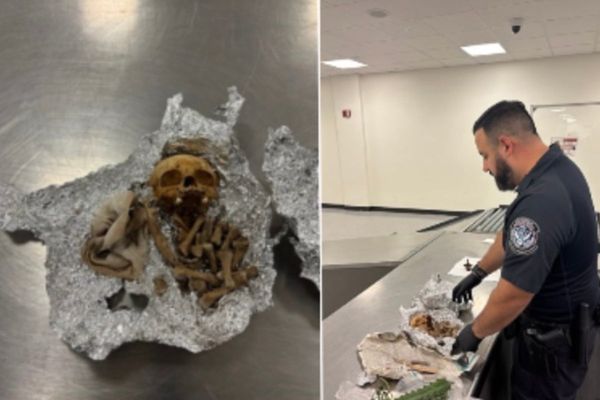Christy Mathewson's life was tragically short. But one of America's first baseball stars set a long-lasting and high standard for professional athletes to follow both on the field and off.
At the peak of Mathewson's (1880-1925) fame, the prolonged cheers from the crowd whenever he took the field disrupted the flow of the game. Mathewson welcomed fans' approval without letting it go to his head.
"I remember how fans would constantly rush up to him and pester him with questions," teammate Larry Doyle told an interviewer years ago. "He hated it, but he was always courteous. I never saw a man who could shake off those bugs so slick without hurting their feelings."
Today's celebrities often struggle to preserve their privacy, while leveraging their success. But Mathewson learned where to draw the line between his personal and private life.
"I owe everything I have to the fans when I'm out there on the mound," Mathewson said. "But I owe the fans nothing and they owe me nothing when I'm not pitching."
Build Up Your Career Over Time
Mathewson's career as a major league pitcher did not begin auspiciously. As a 19-year-old rookie in 1900, he appeared in six games and performed poorly.
But he overcame the jitters and settled into a Hall of Fame career, winning 373 games over 17 years in the majors. During a six-day span in October 1905, he pitched three shutouts in the World Series and led his New York Giants to victory.
Tall, handsome and smart, Mathewson led the kind of upstanding life that even cynics could admire. Raised as a Presbyterian farm boy in Factoryville, Pa., he aced both athletics and academics.
During his college years at Bucknell University, he earned superior grades while excelling in baseball and football. He also played in the band, sang in the glee club, acted in the drama society, wrote poetry and was elected class president, writes Frank Deford in "The Old Ball Game."
After overcoming his poor debut in the majors in 1900, Mathewson's star rose quickly. Within a few years, he was revered by fans and sports writers for both his pitching and his character.
Christy Mathewson: Become Famous For Honesty
Known for his sportsmanship, Mathewson was a truth-teller, too. On close plays, umpires would ask for his help and trust his judgment. Sometimes, he'd rule for the other team.
"He was honest to a fault," said William Kashatus, author of "Diamonds in the Coalfields" and many other books about baseball.
Soon after he retired, he attended the 1919 World Series as a reporter for a New York newspaper. Watching the game in the stands with journalist Hugh Fullerton, Mathewson noted some questionable plays.
"He saw something fishy going on," said Philip Seib, author of "The Player: Christy Mathewson, Baseball, and the American Century." "He could see guys missing plays they should be handling, so he voiced his concern to Hugh Fullerton."
As a result, Fullerton — a prominent baseball writer — exposed what became known as the Black Sox Scandal: Eight players for the Chicago White Sox were accused of throwing the game to their opponent.
Apply Your Success To Business
With his reputation for rectitude, Mathewson gained credibility that carried over into his business dealings. In many ways, he laid the groundwork for today's social media influencers by sharing his opinions about various products and services. But integrity came first with Mathewson.
"He had a strong business sense," said Seib, professor emeritus of journalism and public diplomacy at the University of Southern California. "He was one of the first baseball stars to do advertisements and endorsements."
Examples included ad campaigns for Coca-Cola and Tuxedo Pipe Tobacco. He also promoted sweaters made by Blauvelt Knitting Company.
A savvy negotiator, he knew his worth. Mathewson announced that at age 28, he was leaving baseball to become an insurance agent. His new life in insurance sales only lasted a few months; it was probably an attempt to get a better contract from the Giants.
"He also did vaudeville and silent movies," Seib said. "He was among the first to combine excellence on the field with off-the-field celebrity. He was such a star. You're talking Tom Brady-level stardom from 1908 to 1915 when he was at the top of his career."
Avoid Self Pity
In August 1918, Mathewson chose to quit his job as manager of the Cincinnati Reds to fight in World War I. At age 37, he became a captain in the Chemical Warfare Service. Stationed in France, he taught troops how to don gas masks. The masks protected soldiers from the Germans' mustard gas attacks.
But Mathewson's life took an unexpected curve in the wrong direction. During a training drill, Mathewson accidentally inhaled poison gas and never fully recovered. Stricken with tuberculosis, he spent the last years of his life suffering from constant coughing, fever and weight loss. He died at age 45.
Many people would have ruminated on their misfortune and regretted their decision. "He didn't have to go to war," Kashatus said. "He volunteered."
But on the morning of his death, Mathewson maintained a stoic attitude. "He wasn't into self-pity," Kashatus says.
He called his wife, Jane, to his bedside and said, "It's nearly over. I know it and we must face it. Go out and have a good cry. Don't make it a long one. This is something we can't help."
Never Stop Learning
While Mathewson clearly possessed athletic gifts, he put in the time and effort to develop them. Like many top competitors, he sought continual improvement. He also made decisions to maximize the long-term results.
At age 17, he was already playing semipro baseball. Pitching for a team in Honesdale, Pa., he earned $25 a month plus room and board.
But he opted to go to Bucknell in 1898 to gain a well-rounded education. At that time, only about 6% of Americans had graduated from high school.
Even after he emerged as a star pitcher for the Giants, he didn't stop learning. By closely observing his teammate, Joe McGinnity, he sharpened his change-up — another pitch to add to his already formidable repertoire.
In 1936, Mathewson was one of the first five inductees into the National Baseball Hall of Fame. The others were Babe Ruth, Ty Cobb, Honus Wagner and Walter Johnson.
Researching his book in the early 2000s, Seib traveled to Keystone College in Pennsylvania, where Mathewson attended prep school (then known as Keystone Academy). He sifted through its collection of Mathewson's personal items, including handwritten letters exchanged between Mathewson and his wife during the war.
But one object was especially poignant. "It was sadly ironic to see his gas mask," Seib said.
Christy Mathewson's Keys
- One of America's first true sports heroes. Became a role model to adoring fans who rooted for his success and admired his integrity. One of the first players inducted into the Baseball Hall of Fame.
- Overcame: Allowing the trappings of fame and ego to compromise his integrity.
- Lesson: "Baseball is always played out in the sunshine, where the air is pure and the grass is green, and there is something about the game ... which teaches one to win or lose as a gentleman should, and that is a very fine thing to learn."







